
ΑΙhub.org
Preparing for kick-off at RoboCup2025: an interview with General Chair Marco Simões
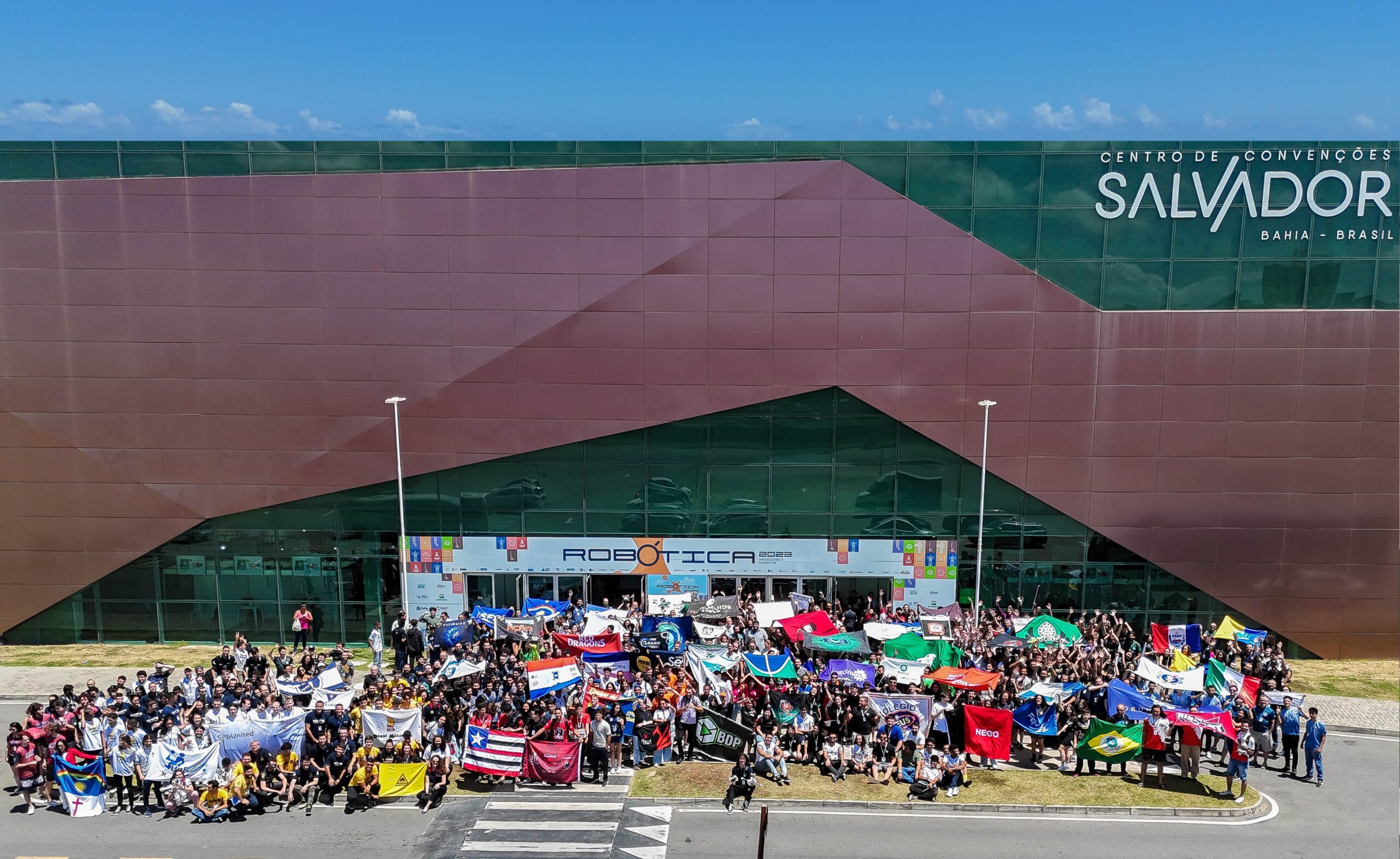 The Salvador Convention Center, where RoboCup 2025 will take place.
The Salvador Convention Center, where RoboCup 2025 will take place.
RoboCup is an international scientific initiative with the goal of advancing the state of the art of intelligent robots, AI and automation. The annual RoboCup event, where teams gather from across the globe to take part in competitions across a number of leagues, will this year take place in Brazil, from 15-21 July. We spoke to Marco Simões, one of the General Chairs of RoboCup 2025 and President of RoboCup Brazil, to find out what plans they have for the event, some new initiatives, and how RoboCup has grown in Brazil over the past ten years.
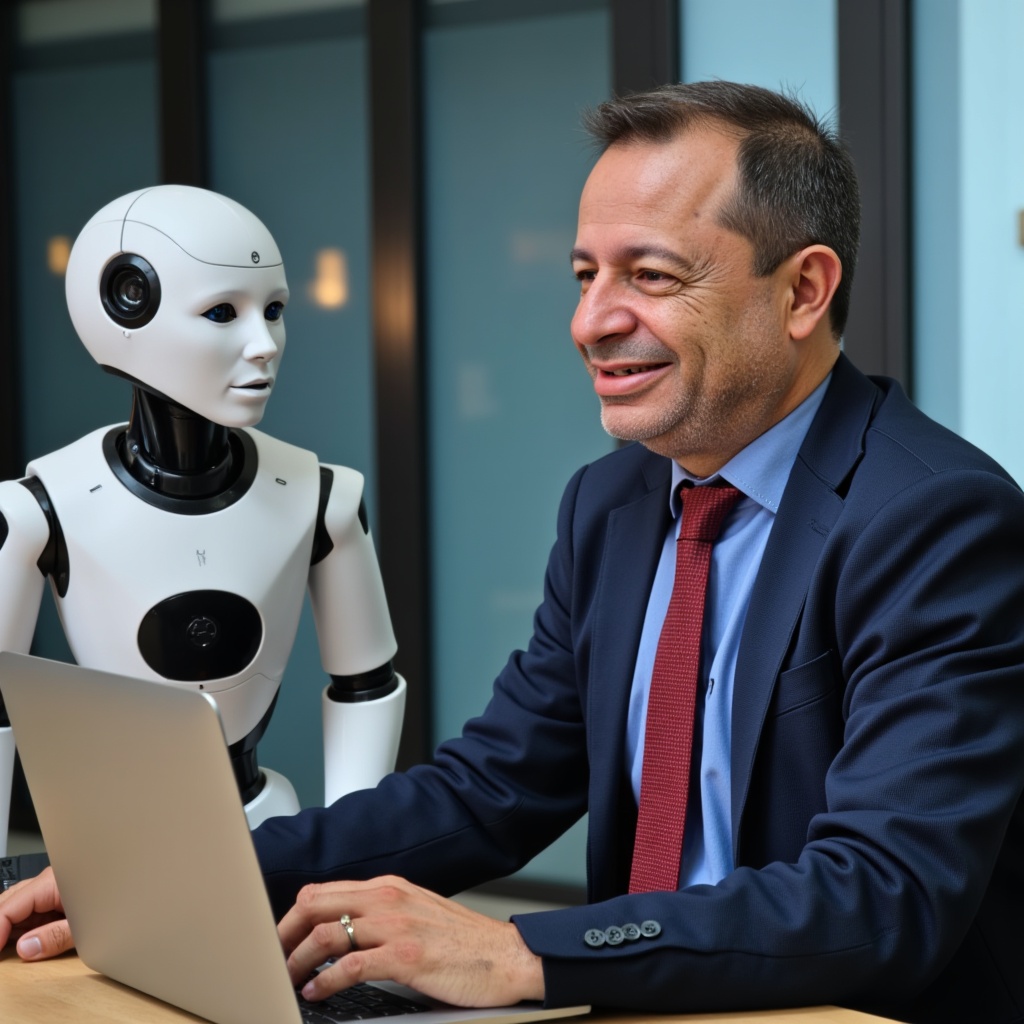 Marco Simões
Marco Simões
Could you give us a quick introduction to RoboCup 2025?
RoboCup will be held in Salvador, Brazil. When RoboCup was held in Brazil 11 years ago, in 2014, we had a total of 100,000 visitors, so that was a great success. This year, we expect even more, around 150,000, during all the events. Nowadays, AI and robotics are attracting more attention. We are also in a town, Salvador, with a bigger population than the previous location (João Pessoa). For these reasons, we estimate the attendance to be about 150,000 people.
Regarding the number of teams, registration has not closed yet, so we’re unsure about the final numbers. However, we expect to have about 300-400 teams and around 3000 competitors. We have been helping with visas, so we hope to see higher participation from teams who couldn’t attend in the previous two years due to visa issues. We are doing our best to ensure people can come and have fun at RoboCup!
This is also a great year for the RoboCup community: We have just agreed on new global league partners, including the Chinese companies Unitree, Fourier, and Booster Robotics. They will bring their humanoids and four-legged robots to RoboCup. These will not only be exhibited to the public but also used by some teams. They are amazing robots with very good skills. So, I think this will be an amazing edition of RoboCup this year.
Did the 2014 event in Brazil inspire more teams to participate in RoboCup?
Yes, we have seen a significant increase in our RoboCup community. In the last two years, Brazil has had the fourth-largest number of teams and participants at RoboCup in Bordeaux (2023) and Eindhoven (2024). This was a very big increase because ten years ago, we were not even in the top eight or nine.
We’ve made a significant effort with RoboCupJunior in the last ten years. Most people who’ve taken part in RoboCupJunior have carried on and joined the RoboCup Major League. So, the number of teams in Brazil has been increasing year by year over the last ten years. This year, we have a great number of participants because of the lower travel costs. We are expecting to be in the top three this year in terms of the highest number of participants.
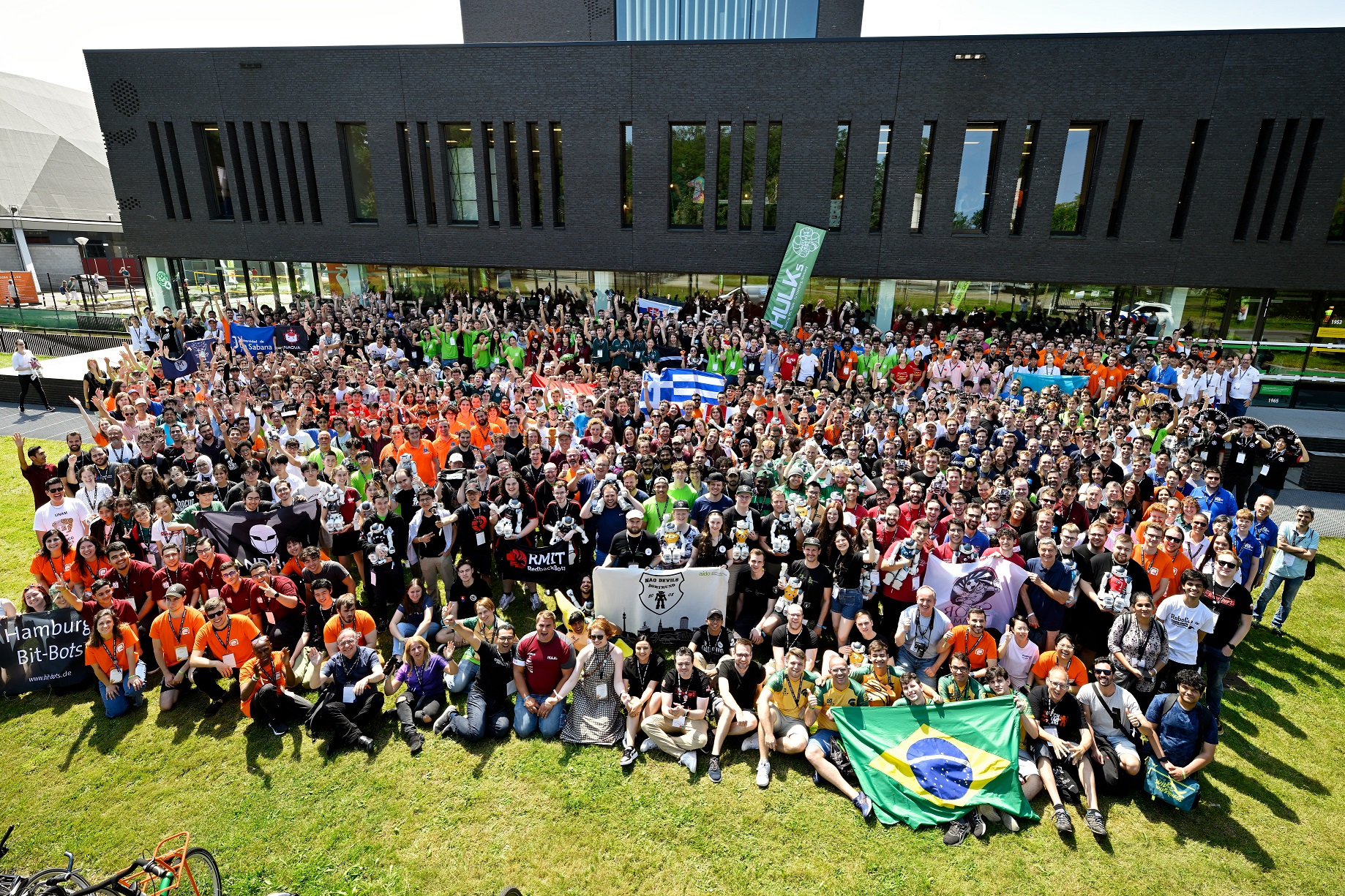 Photo of participants at RoboCup 2024, which took place in Eindhoven. Photo credit: RoboCup/Bart van Overbeeke
Photo of participants at RoboCup 2024, which took place in Eindhoven. Photo credit: RoboCup/Bart van Overbeeke
It’s impressive that so many RoboCupJunior participants go on to join a Major League team.
Yes, we have an initiative here in Brazil called the Brazilian Robotics Olympiad. In this event, we chose two Junior Leagues – OnStage and the Rescue Line League – and we organized a competition based on these two Leagues. We run it in regional competitions all over Brazil – so 27 states. We organize at least one competition in each state during the year, and the best teams from each state come to the national competition together with the Major Leagues. We organize the Brazilian Olympiad to get RoboCupJunior to more students. This is how we’ve managed to increase participation in RoboCupJunior. Then, when students go to university, many of them continue to participate, but in the Major Leagues. So that’s a very successful strategy we’ve used in Brazil in the last 10 years.
Could you tell us about some more of the highlights from the Brazilian RoboCup community in recent years?
Two or three years ago, one of the Brazilian teams was the champion of RoboCup @Home. We have seen a big increase in the number of teams in the @Home League. In the national competition in Brazil, we have more than 12 teams participating. Back in 2014, we only had one team participating. So we’ve had a great increase—this League is one of the highlights in Brazil.
More teams are also participating in the Small Size League (part of the soccer League). Two years ago, one of the Brazilian teams was the champion of the division B of the Small Size League. So, over the last five years, we’ve seen some Brazilian teams in the top three positions in Major Leagues in the RoboCup world competition. This is a result of the increase in the number of teams and the quality of what the teams are developing. So at this time, we have an increased number of publications and teams participating in the competition with good results, so that’s very important.
Another excellent contribution for this year is a league we created five years ago – a flying robot league, where autonomous drones perform some missions and tasks. We’ve proposed this League as a demo for RoboCup2025, and we will have a Flying Robot Demo at the competition this year. This will be the first time we’ll have autonomous drones at the RoboCup competition, and the Brazilian community proposed it.
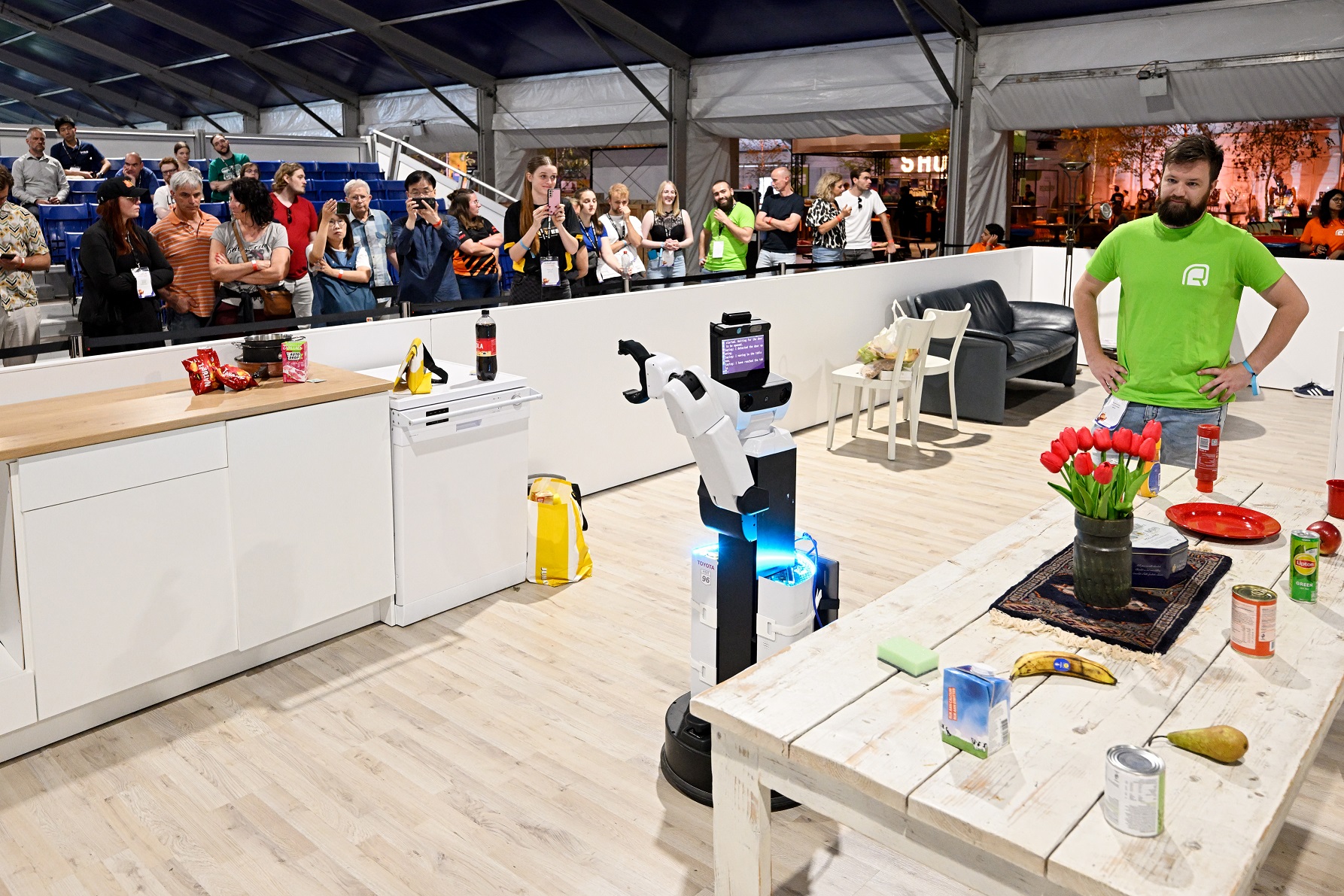 RoboCup @Home with Toyota HSR robots in the Domestic Standard Platform League, RoboCup 2024. Photo: RoboCup/Bart van Overbeeke.
RoboCup @Home with Toyota HSR robots in the Domestic Standard Platform League, RoboCup 2024. Photo: RoboCup/Bart van Overbeeke.
Will you be taking part in the competition this year, or will you be focusing entirely on your role as General Chair?
This year, my laboratory (ACSO/Uneb) has qualified for the 3d Simulation League (soccer), the Flying Robot Demo, and RoboCup @Home, so we are participating in three Leagues. We also supervise RoboCupJunior Teams in the Rescue Simulation League. This year, my students have had only a little supervision from me because I’ve been very engaged with the organization.
In our 3D simulation team, we have lots of developments with deep reinforcement learning and some new novel strategies that allow our teams to gain new skills, and we are combining the new skills with our former multi-agent coordination strategy. For this reason, I think we will have a robust team in the competition because we are not only working on skills, we are also working on multi-agency strategies. When both aspects are joined, you can have a really good soccer team that plays very well. We have a good team and expect to achieve a greater position this year. In the latter years, we were in the top four or five, but we hope to get into the top three this year.
In 3D, you not only work on multi-agent aspects but also need to work on skills such as walking, kicking, and running. Teams are now trying to develop new skills. For example, in recent years, our team has developed the sprint running movement, which was a result of deep reinforcement learning. It is not a natural running motion but a running movement that works according to the League’s rules. It makes the robots go very fast from one point to another, making the team very competitive.
Most teams are learning skills but don’t know how to exploit them strategically in the game. Our focus is not only on creating new skills but also on using them strategically. We are currently working on a very innovative approach.
This year, the simulation league will run a challenge using a new simulator based on MuJoCo. If the challenge goes well, we may move to this new simulator in the following years, which can more realistically simulate real humanoid robots.
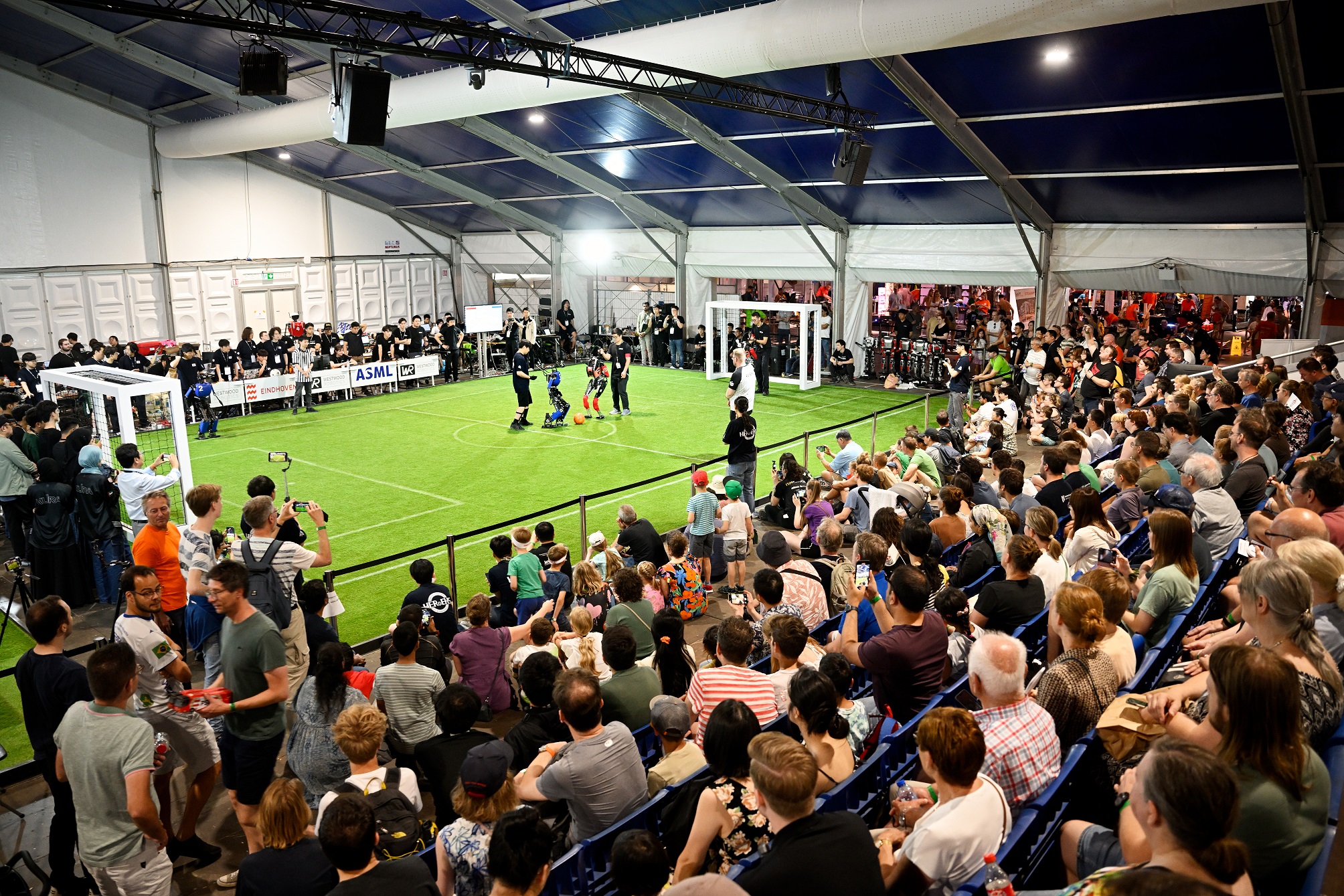 Action from the semi-finals of RoboCup Soccer Humanoid League at RoboCup 2024. Photo: RoboCup/Bart van Overbeeke.
Action from the semi-finals of RoboCup Soccer Humanoid League at RoboCup 2024. Photo: RoboCup/Bart van Overbeeke.
Finally, is there anything else you’d like to highlight about RoboCup2025?
We are working on partnerships with local companies. For example, we have sponsorship from Petrobras, one of the biggest oil companies in the world. They will discuss how they are using robotics and AI in their industry. They were also one of the first sponsors of the Flying Robots League. It’s important to have these links between industry and the RoboCup community.
We also have excellent support from local companies and the government. They will be showing the community their latest developments. In the Rescue League, for example, we’ll have a demonstration from the local force showing what they do to support people in disaster situations.
This event is also an excellent opportunity for RoboCuppers, especially those who have never been to Brazil, to spend some days after the event in Salvador, visiting some tourist spots. Salvador was the first Brazilian capital, so we have a rich history. There are a lot of historical sites to see and some great entertainment options, such as beaches or parties. People can have fun and enjoy the country!
About Marco

|
Marco Simões is an Associate Professor at Bahia State University, Salvador, Brazil. He is the General Chair of RoboCup2025, and President of RoboCup Brazil. |
tags: RoboCup, RoboCup2025










